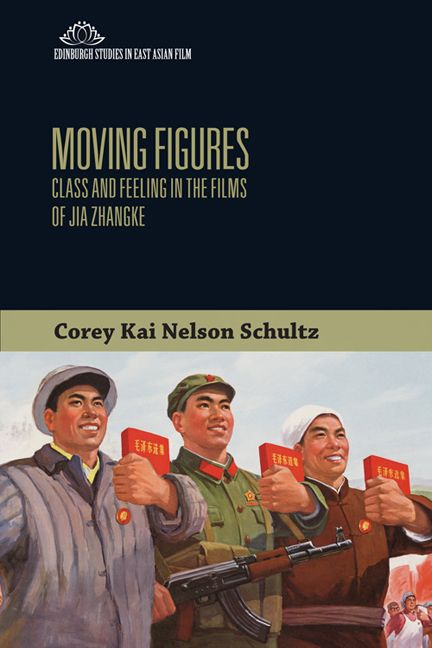Book contents
- Frontmatter
- Contents
- List of Figures
- Acknowledgments
- Introduction
- 1 The Worker Class: From Leader to the Margins
- 2 The Peasant and the Mingong: From Empathy to Sympathy to Looking Back
- 3 The Soldier: From Degraded Reproduction to Avenging Hero
- 4 The Intellectual: Power and the Voice
- 5 The Entrepreneur: From Crook to “New Reform Model”
- Notes
- Filmography
- Works Cited
- Index
3 - The Soldier: From Degraded Reproduction to Avenging Hero
Published online by Cambridge University Press: 10 May 2023
- Frontmatter
- Contents
- List of Figures
- Acknowledgments
- Introduction
- 1 The Worker Class: From Leader to the Margins
- 2 The Peasant and the Mingong: From Empathy to Sympathy to Looking Back
- 3 The Soldier: From Degraded Reproduction to Avenging Hero
- 4 The Intellectual: Power and the Voice
- 5 The Entrepreneur: From Crook to “New Reform Model”
- Notes
- Filmography
- Works Cited
- Index
Summary
Introduction
This chapter analyzes the final figure of the Maoist triumvirate, the People's Liberation Army (PLA) soldier (兵). This figure is not a main figure in the films, but its presence is still symbolized, referenced, and felt. For example, in Xiao Wu, the presence of authority and the state is symbolized by the soldier's cognate, the figure of the police chief, who repeatedly tries to convince the film's eponymous protagonist to give up his life of petty crime, but who ends up later charging him with theft. In Unknown Pleasures, one of the main characters is instructed by his mother to leave and become a soldier, but a diagnosis of hepatitis prevents him both from enlisting and further separates him from society, because it is an illness that complicates his future intimate relationships. In The World, the soldier is alluded to in the form of security guards who wear military-style uniforms, but their authority has been weakened because they are represented as little more than errand-boys carrying water cooler bottles between venues, and one is even discovered to be a thief. In Still Life, the husband of one of the protagonists was a former soldier who left the military to work in a factory, and then became the business partner and lover of a corrupt entrepreneur who allegedly bankrupted the same factory. In 24 City, one interviewee talks about a photograph of a young soldier, who supposedly died due to a poorly-assembled component from their factory, which had been shown to the workers as a warning, to remind them of the importance of production quality. In I Wish I Knew, soldiers are later revealed to actually be film extras in uniform who are performing on a movie set outside of Shanghai, and the inclusion of a movie clip from The Shanghai Battle (Wang Bing, 1959) represents the figure appearing as theatrical and fantastical. A Touch of Sin produces a heroic soldier-like character named Dahai who is fighting corruption in his village, while also juxtaposing this hero with sex workers that dress up as soldiers to entice their clients.
- Type
- Chapter
- Information
- Moving FiguresClass and Feeling in the Films of Jia Zhangke, pp. 84 - 108Publisher: Edinburgh University PressPrint publication year: 2018



